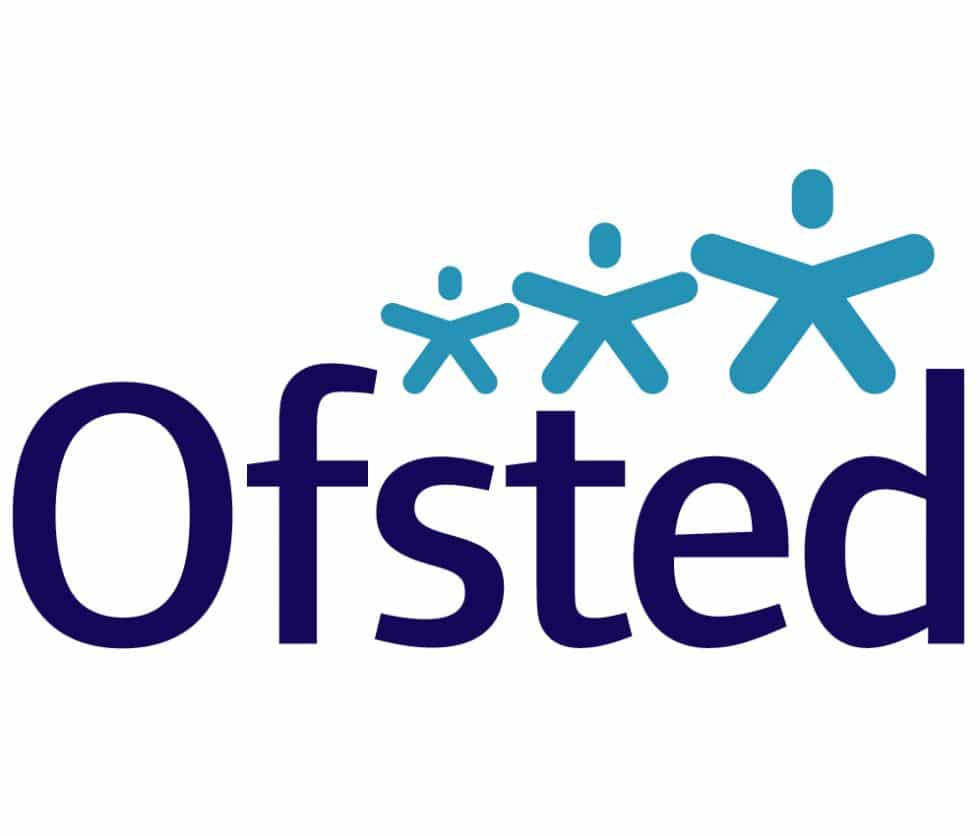
Developing Children’s Knowledge and Skills with Ofsted’s NEW Report
Ofsted has just published Report 2… …part of our series of subject-based curriculum research reviews. Do you remember the first one Best Start? This second…
May 20th 2019
It was the longest and largest consultation Ofsted has ever undertaken (four months with 100 focus groups and 250 pilots across the sector) and consequently 15,000 people replied. Lesson to Ofsted, and the DfE may listen, but if you really want our views; give it enough time, be visible, share the information widely and people will respond.
So, the new Ofsted inspection framework is ready and its no longer common; today we have an Education Inspection Framework (EIF) which will come into effect for inspections from September. Although, having just had an inspection, inspectors are already thinking and talking in line with this approach. So get ready now.
Amanda Spielman’s letter said:
I am heartened by the overwhelming support for what we’re doing to focus on the substance of education and place less emphasis on tests and data…the new framework puts the real substance of education, the curriculum, back at the heart of inspection and supports leaders and teachers who act with integrity.
We hope all providers will no longer feel the need to generate and analyse masses of internal data for inspection. Instead, we want them to spend their time teaching and making a real difference to learners’ lives, which is why they entered the profession in the first place.
Our goal is very simple. To be a force for improvement through our inspections. We want to provide parents with the assurance they need, support teachers and leaders to excel and help make sure all children and learners get the education they deserve.
Keep this and pin it to your wall. Because when Ofsted inspectors forget this and revert to looking for documentation, paperwork and written evidence you can quote their boss.
Overall, the handbook looks much the same and there were no significant changes to the inspection processes. Usual emphasis on compliance, safeguarding and welfare including checking staff recruitment and qualification records, DBS and complaints.
I know there was a push to reject the four grades (outstanding, good, requires improvement and inadequate), but they remain the same.
Given the number of two and three year olds in school and the concern about the misunderstanding of how to shape a play based curriculum. I was disappointed that schools that take children aged two years and over as part of the EY provision cannot normally register that provision with Ofsted and the provision will be inspected under the school inspection arrangements.
However, its pleasing that they are pushing for more visibility on the practice of off rolling and even more sensible is the decision to recognise that after school settings don’t need to meet the learning and development requirements and children can relax, play and have down time after school.
Having read the handbook, I picked out the things I thought might be of use to you.
The emphasis in the inspection is learning and Inspectors will complete a learning walk around the premises. This is your time to set out your pedagogical approach and this will set the course of the inspection. The emphasis on learning is powerful throughout the handbook.
“If provision follows a specific philosophical or pedagogical approach or reflects a particular faith, inspectors must become familiar with it…” Pg 25 para 118
For example, I would be guiding all the LEYF managers to explain how we teach and how the children learn during this walkabout so they can see this in action as they conduct the inspection. Then an inspector can decide if they want to join the children for their daily walk or observe the yoga session or just be part of the way the day is planned.
The handbook is clear that Inspectors must spend gathering evidence about quality of care, teaching and learning and how the leaders of the settings support staff to help children learn. The will collect evidence by:
* Observing the children at play
* Talking to the children and practitioners about the activities provided
* Talking to parents to gain their views on the quality of care and education
* Observing the interactions between the practitioners and children
* Gauging children’s levels of understanding and their engagement in learning
* Talking to practitioners about their assessment of what the children know and can do and how they are building on this
* Observing care routines and how they are used to support child’s’ personal development including the settings approach to toilet training
* Evaluation the practitioner’s knowledge of the EYFS
Note the emphasis on talking and observing rather than sitting on a laptop.
Strengthen your staff ability to conduct confident pedagogical conversations and be well versed in describing how their children learn. If Ofsted get this right, then we could see an improvement in how staff teach.
A shout out here to all colleges and universities to teach staff how to build and develop a pedagogical conversation.
If you are stuck, ask us, we have been working on these for years.
As before inspectors will track two or more children and discuss with the provider what they intend the relevant children to learn building on what the children know and can already do. They can also seek:
* The practitioner’s knowledge of each child
* The progress check for any children aged 2
* The impact of any early year’s pupil premium funding on the children’s development
* The quality of support for any child with SEND
* The discussions held with each child’s key person and how they decide what to teach
How well children are developing in the prime and specific areas of learning that help them to be ready for their next stage of education including school. (Are we seeing the quiet removal of the dreaded school readiness phrase?)
Inspectors do not expect to see documentation other than that set out in the EYFS they will use the evidence gathered from discussions and their own observations to help judge the overall quality of the curriculum provided by the children.
The cultural capital is also strongly linked to the ability of staff to develop and extend children’s vocabulary. (I am very happy about this because it’s a key underpinning of the LEYF Pedagogy, for once someone listened!).
But here is the paragraph describing the Ofsted expectation of Cultural Capital:
“The essential knowledge that children need to prepare them for their future success. It is about giving children the best possible start to their early education. A apart of making a judgement about the quality of education, inspectors will consider who well leaders use the curriculum to enhance the experience and opportunities available to children , particular the most disadvantaged. Some children arrive at an EY settings with different experiences from others, in their learning and play. What’s a setting does, through its EYFS curriculum and interactions with practitioners, potentially makes all the difference for children. It is the role of the setting to help children experience the awe and wonder of the work in which they live, through the seven areas of learning.” Pg 32 para 142/143
In other words, build on what the children know and can do, enrich their language and literacy using every opportunity available to you, strengthen your quality of teaching and engagement with children. Build your staff confidence and ensure they have a staff development plan that also extends them. This is cultural capital.
Inspectors will instead look at how staff:
* Encourage dialogue with the children
* Watch, listen and respond to children
* Model language well
* Read aloud and tell stories to children
* Encourage children to sing songs, nursery rhymes and musical games
* Encourage children to express their thoughts and use new words
* Support independence and confidence
* Encourage children to speculate and try new ideas through trial and error
* Enable children to explore and solve problems
* Behave as an excellent role model for children
* Support children to recognise and respond to their own physical needs
* Attend to children’s personal needs
* Deal with children’s care arrangements, including intimate care and the levels of privacy afforded to children and the supervision arrangements when undertaking personal hygiene tasks.
Inspectors will look check how the manager supports staff to promote the learning and development of all children and will be interested to understand the settings view of staff engagement with the children and the quality of the implementation of the curriculum. So, Mr Hinds, any chance of a workforce strategy for all the sector so we can support the depleted numbers of staff to become strong pedagogues?
The inspection will conclude with inspectors will make the following judgements and use the usual four grade descriptors. They won’t grade intent, implementation and impact separately, instead inspectors will reach a single graded judgement for the quality of education drawing on all the evidence they have gathered using their professional judgement.
* Overall effectiveness
* Quality of education
* Behaviour and Attitudes
* Personal Development
* Leadership and Management
So, good luck. Be prepared and become a practised pedagogical conversationalist.
In the meantime, I have invited all the regional chairs of the OBC to engage in a conference call this September, so we can agree the national agenda for the next OBC meetings. By working together and leading with a strong central message we have marshalled our energy to shape a more equal relationship with Ofsted. This is all the more important now as we enter new inspection waters.
Here are the details of the Regional Chairs and Co-Chairs. There are a few gaps, please get involved.
| East | Linda Bastion Pitt |
| East Midlands | Pennie Akehurst |
| London | Simona McKenzie |
| London | June O’Sullivan MBE |
| North East | Jo Verrill |
| North East & Yorkshire | Vanessa Warn |
| North West | Jo Kinlock |
| North West | Jennie Johnson |
| South East | Kate Peach |
| South West | Cheryl Hadland |
| South West | Mandy Richardson |
| West Midlands | Tricia Wellings |
| West Midlands | Dale Ramsay |
| West Midlands | Alison Beard |
Join your regional OBC. Things are much better with Ofsted but that is because we are proactive and we need to remain so.
Share this message widely.

Ofsted has just published Report 2… …part of our series of subject-based curriculum research reviews. Do you remember the first one Best Start? This second…

There is little doubt that the Recruitment and Retention issues facing the sector continue to cause concern and are impacting on the ability of more and more providers to meet…

How do you know a Zoom debate is lively? Well, read the chat. At this year’s 14th annual Margaret Horn debate the question explored asked if times of upheaval…